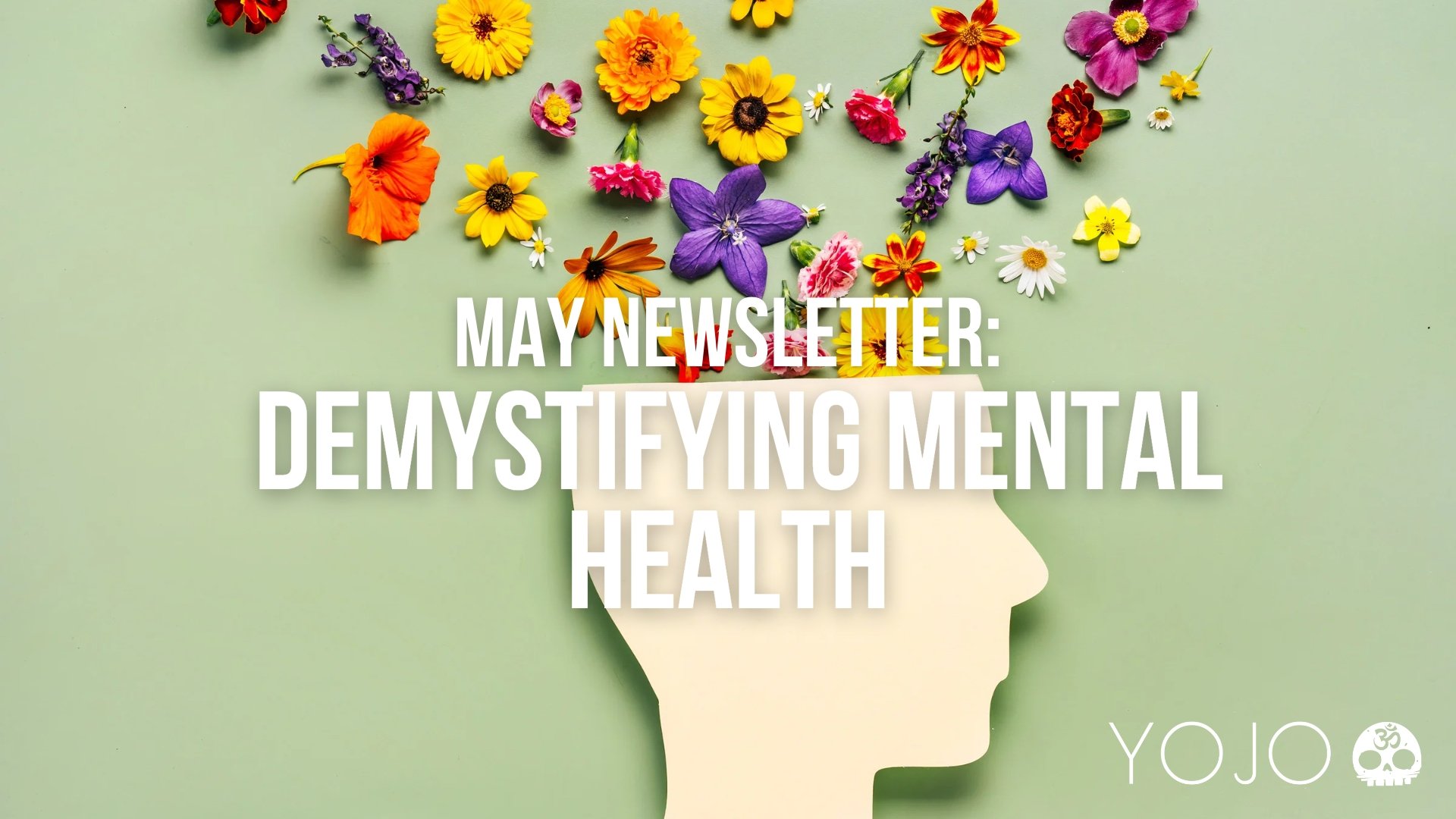May: Mental Health Awareness Month
Posted May 3, 2023
Having to care for Mental Health may not be as stigmatized but do we take it as seriously as our physical health? We’re still in a moment in history where there is a lot to learn about mental health and the care that is required. For starters, it’s not black or white where some people have mental health conditions and some people don’t. Just like physical health, it changes so much throughout our lives. Seemingly healthy people can start to struggle as time passes or when challenging life events happen. And those who have struggled a lot with their health can heal and gain health over time. Because our mental health is so fluid, it requires time and attention to understand its state at any given time and it also needs continuous care. While self-care is a very important aspect of that care, it’s not the whole picture. It’s important to have relational care and community care as well.
In dedication to Mental Health Awareness Month, we want to go more in-depth with giving you an understanding of the framework of care, facts vs. myths on mental health, and some of the important pillars of mental health. Good mental health is the framework of mindfulness because, without it, it can feel like mindfulness just isn’t accessible. We can feel like we don’t have the energy to participate in meditation or stretching or that we are too hyped up to let ourselves be still and relaxed.
Our other goal is to help create awareness around Mental Health and Mental Illness so that stigmas around Mental Health are taken down so that they don’t act as a barrier to getting the care that is needed and ultimately regulating the nervous system enough to be able to enjoy and benefit from mindfulness practices.
A Mental Illness is not a static diagnosis
Mental Illness symptoms vary from person to person. Meeting one person with a particular diagnosis doesn’t mean that appears the same way in all people with that diagnosis
Depending on the treatment of the disease as well as the current stressors in a person’s life, the symptoms can vary drastically. With the right care and mitigation of stressors, symptoms can be drastically reduced.
Accommodations can be a form of treatment
An accommodation is an adjustment in the working or lifestyle condition that allows a person to participate in the same activity or job
This may include altering how time is spent or the stimulation happening during a particular activity or project.
Accommodations are different for everyone and extremely personal. Just like finding the right medication, finding the right accommodations can take time and exploration but once found can dramatically improve the quality of life, the efficiency of caring out a task, and reduce the stress endured in participating in that task.
Everyone can benefit from accommodations. This can be as simple as adjusting the temperature of a room or being able to take some of your meetings by phone so you can step away from your desk. It’s about doing what is needed so that you avoid burnout while still completing what is needed to get the job done.
Rest is not lazy, it’s cost-effective
Burnout costs trillions of dollars per year in lost work from absenteeism, from working in a less effective way, etc…
When we work from a full cup, we can accomplish more in less time and give time back to the rest of our lives.
Rest is not zoning out. Rest is a time when the body and mind are allowed to feel calm. Examples of this are a nap, a bath, a long walk, meditation, or eating slowly and mindfully.
Self-care is not enough
While self-care is a game changer and a non-negotiable for avoiding burnout, it alone is not enough.
We need more forms of care from what we refer to at YoJo as the trilogy of care. This includes not only self-care but relational care (giving and receiving care) and community care. Without this ability to participate in interactive care with others, we miss out on the chance to co-regulate which is how we calm our nervous systems by feeling safe with others. We need to feel safe and connected to others for immunity and to be able to feel grounded and lower our stress responses.
What doesn’t kill you doesn’t always make you stronger
We are meant to do hard things. We are built to do hard things. They help us to grow, build confidence and learn new ways to survive and thrive.
After we go through experiences that are exhausting or even harmful to us, we need a period of healing and repair. Resilience doesn’t mean simply picking yourself up after you fall but using the care you need so that you can rebound and heal.
** Statistics reported from the National Alliance of Mental Illness

